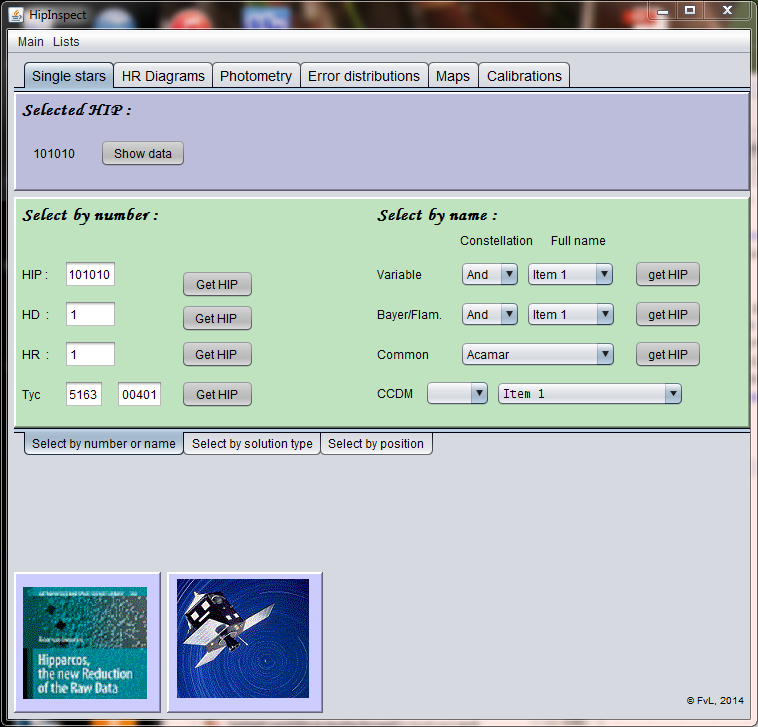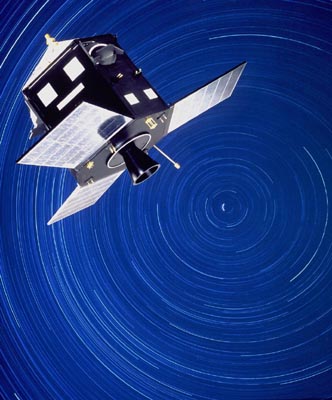Home - Hipparcos
The Hipparcos Space Astrometry Mission
|
|
|
|
ESA's Hipparcos space astrometry mission was a pioneering European project which pinpointed the positions of more than one hundred thousand stars with high precision, and more than one million stars with lesser precision. Launched in August 1989, Hipparcos successfully observed the celestial sphere for 3.5 years before operations ceased in March 1993. Calculations from observations by the main instrument generated the Hipparcos Catalogue of 118,218 stars charted with the highest precision. An auxiliary star mapper pinpointed many more stars with lesser but still unprecedented accuracy, in the Tycho Catalogue of 1,058,332 stars. |
|
The Tycho 2 Catalogue, completed in 2000, brings the total to 2,539,913 stars, and includes 99% of all stars down to magnitude 11, almost 100,000 times fainter than the brightest star, Sirius. This web site presents background information describing the mission, the satellite and payload, operations and data reduction procedures. The Hipparcos and Tycho catalogues are described, and details on how to access the catalogues are provided. Some scientific highlights from the mission are noted. A number of resources are provided indicating how the Hipparcos and Tycho data can be used as educational tools. Visual material, in the form of photographs, images and animations are available for use. |
|
- Removed a total of (4) style text-align:justify;
- Removed a total of (1) align=center.
- Removed a total of (1) border attribute.
- Removed a total of (1) cellpadding attribute.
- Removed a total of (1) cellspacing attribute.
Mission Status |
|
Catalogues Released: June 1997 Operational: August 1989 - March 1993 Launch: August 1989 |
- Removed a total of (2) style text-align:center;
- Removed a total of (1) align=middle;
- Removed a total of (1) border attribute.
- Removed a total of (1) cellpadding attribute.
- Removed a total of (1) cellspacing attribute.
Spotlight on ... |
 |
| New interactive data access tool: interrogate the Hipparcos data |
- Removed a total of (3) style text-align:center;
- Removed a total of (2) align=middle;
- Removed a total of (1) border attribute.
- Removed a total of (1) cellpadding attribute.
- Removed a total of (1) cellspacing attribute.
Related mission |
| Gaia |
- Removed a total of (2) style text-align:center;
- Removed a total of (1) align=middle;
- Removed a total of (1) border attribute.
- Removed a total of (1) cellpadding attribute.
- Removed a total of (1) cellspacing attribute.








































 Sign in
Sign in
 Science & Technology
Science & Technology
